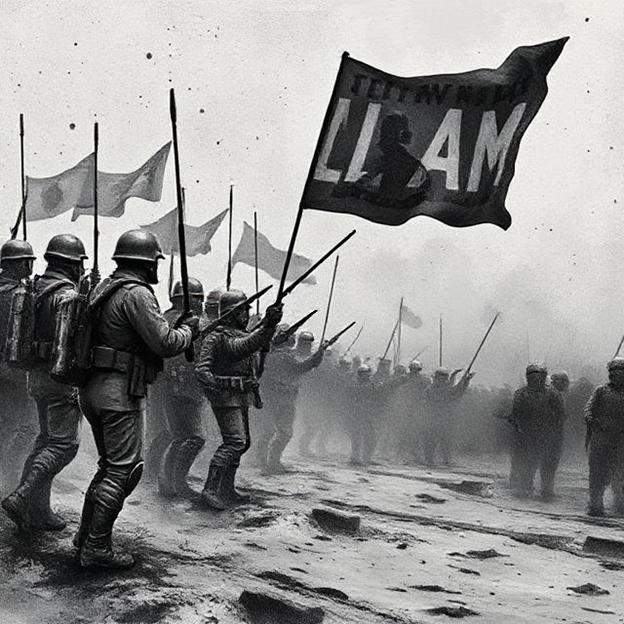🕊
"امن کی
پکار ہوں ہر جنگ کے خلاف ہوں" اکشر
دنیا کی تاریخ جنگوں سے بھری ہوئی ہے، مگر ان جنگوں نے انسانیت کو
زخموں کے سوا کچھ نہیں دیا۔ کچھ لوگ جنگ کو ناگزیر یا ضروری سمجھتے ہیں، لیکن میں
ہر جنگ کے خلاف ہوں — صرف غلط جنگوں کے نہیں، بلکہ تمام جنگوں کے۔ کیونکہ ہر جنگ
انسانیت کی شکست، بربادی اور تکلیف کا دوسرا نام ہے۔
انسانی قیمت
جنگ صرف حکومتوں یا افواج کا مسئلہ نہیں ہوتی، بلکہ یہ عام انسانوں کی
زندگیوں کو اجاڑ دیتی ہے۔ بچے یتیم ہو جاتے ہیں، عورتیں بیوہ ہو جاتی ہیں، خاندان
بکھر جاتے ہیں، اور شہروں کی جگہ قبرستان بن جاتے ہیں۔ ایک بھی معصوم جان کی
قربانی کسی بھی مقصد کے لیے ناقابل قبول ہونی چاہیے۔
تشدد کا انجام امن نہیں ہوتا
جنگ کو اکثر اس وقت اپنایا جاتا ہے جب بات چیت ناکام ہو جائے، مگر یہ
دراصل انسانی عقل کی ناکامی ہے۔ اصل طاقت ہتھیاروں میں نہیں، بلکہ برداشت اور فہم
میں ہے۔ جو امن ہم تشدد سے حاصل کرتے ہیں، وہ عارضی اور کھوکھلا ہوتا ہے۔ سچا امن
انصاف، ہمدردی، اور برابری پر مبنی ہوتا ہے — خوف پر نہیں۔
جنگ کی جھوٹی عظمت
معاشرے نے جنگ کو اکثر ہیرو ازم، شہادت، اور بہادری کے روپ میں پیش کیا
ہے۔ مگر ہر "فتح" کے پیچھے سینکڑوں لاشیں، برباد خواب، اور صدیوں تک
چلنے والے زخم ہوتے ہیں۔ جنگ کسی فلم یا کھیل کا منظر نہیں، بلکہ ایک ایسی حقیقت
ہے جو نسلوں تک درد دیتی ہے۔
امن کی پکار
میں جنگ کے خلاف ہوں، کیونکہ میں زندگی، امید اور انسانیت کے حق میں
ہوں۔ امن کمزوری نہیں، بلکہ سب سے بڑی طاقت ہے۔ ہمیں ایسے راستے اپنانے چاہئیں جو
محبت، بات چیت، اور باہمی احترام پر مبنی ہوں، نہ کہ نفرت، دیواروں اور بندوقوں پر۔
"میں ہر جنگ کے خلاف
ہوں" محض ایک رائے نہیں، بلکہ
ایک اصول ہے۔ یہ ایک اعلان ہے کہ ہم نفرت کی بجائے محبت کو چُنیں گے، جنگ کی بجائے
امن کو اپنائیں گے، اور خون کی بجائے روشنی کو ترجیح دیں گے۔
دنیا کو اب جنگوں کی نہیں، امن کی آوازوں کی ضرورت ہے — اور میں فخر سے
کہتا ہوں، میں ان آوازوں میں سے ایک ہوں۔







